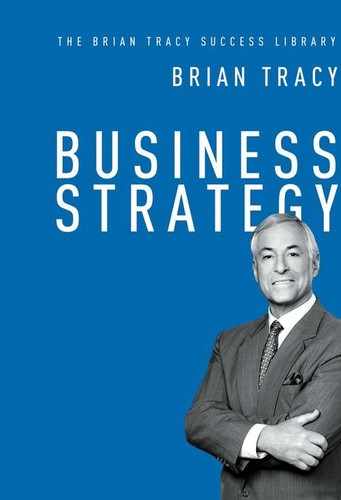Flexibility Wins
In chapter two, I talked about the principle of maneuver, which in business means maintaining the flexibility to innovate and respond quickly to whatever happens in your environment.
The principle of maneuver requires that you continually anticipate what might happen. You develop fallback positions. You prepare to be able to move forward, backward, and sideways in the market, if necessary. You resolve never to get locked into a single plan with no flexibility or no other choice. You continually keep your options open and develop new options.
Avoid Limited Thinking
Darius had only one plan. His plan was that the chariots would break through and he would demoralize the Macedonian army. Then his men would march forward and envelop the demoralized Macedonian troops, overwhelming them and wiping them out. He would win. But when the chariots didn’t work, Darius had no fallback plan. It cost him the greatest empire that the world had ever seen to that date.
Alexander had a fallback plan if the chariots of Darius were able to get through to his army. His men were prepared to quickly maneuver to form columns and create a broad passageway so that the chariots and riders could run through into the back of his army where his special troops were waiting to chop them to pieces.
Prepare Contingency Plans
Royal Dutch Shell is one of the most successful companies in the world. It has oil and gas extraction activities in a hundred countries, combined with pipelines to get the gas and oil to ships and refineries. It has ships to transport the fuel to markets and even gas stations blanketing the countries in which Shell operates, to sell finished products to the driver at the pump.
Royal Dutch Shell is also famous for its “contingency planning.” Over the years, the company has developed more than 600 contingency plans for any setback or emergency that could occur anywhere in the world that would affect its operations in any way. No matter what happens in terms of wars, revolutions, terrorist attacks, the closing of shipping routes, the fall of governments, the abrogation of contracts with governments to cut off supplies of gas, oil, or markets in a particular area, Shell has developed a plan.
It used to be that the strategy for growing operations went in only one direction: scaling up. Scaling up was the best way to get the most productivity and to reduce unit costs. Bigger was better. Ten 100-ton dump trucks using ten drivers carry the same amount of load as 100 ten-ton dump trucks requiring 100 drivers! So scale up to those 100-ton dump trucks as soon as you can.
At least, that was the old way of thinking. But according to professors Garrett van Ryzin of Columbia Business School and Klaus Lackner of Columbia University’s School of Engineering and Applied Science, the old way of thinking may not be the most efficient. New automation and communication technology are changing the rules. Now a large number of small units may be better than a small number of large units because they introduce a whole new level of flexibility.
Here’s an example. Chlorine is a chemical that’s widely used in industry. The problem is that it is also very dangerous to transport. Under the old rules, manufacturers would achieve economies of scale by building large chlorine plants to save money on labor and other costs. But automation and technology means that today, labor costs in those plants are low. On the other hand, a fewer number of plants means dangerous transportation across long distances. So instead of building huge plants, chlorine manufacturers are building a lot of small chlorine plants that are automated and remotely monitored.
Van Ryzin and Lackner list the benefits of rejecting the old economies of scale strategy in industrial production:
![]() Risk reduction. Large-scale industrial disasters are less likely.
Risk reduction. Large-scale industrial disasters are less likely.
![]() Financial flexibility. Large plants are often running at below capacity. Build a small plant. Then when you need it, build another small plant.
Financial flexibility. Large plants are often running at below capacity. Build a small plant. Then when you need it, build another small plant.
![]() Operating flexibility. If your needs go down, it’s easy to just take a small plant completely offline. If you have just a few large plants, you’ll have to keep them open.
Operating flexibility. If your needs go down, it’s easy to just take a small plant completely offline. If you have just a few large plants, you’ll have to keep them open.
![]() Geographic flexibility. You can disperse a number of small plants to locations close to supply and demand sources.
Geographic flexibility. You can disperse a number of small plants to locations close to supply and demand sources.
Going small and flexible when everyone else in your industry is still thinking bigger is better is a major way to out-maneuver your competitors.
